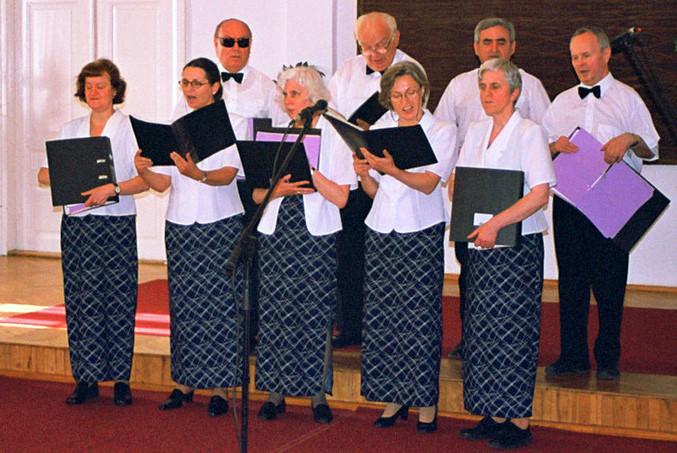

Choral Music Library prepared by the Edwin Kowalik Music Society under the project sponsored by the Leopold Kronenberg Foundation.


Choral Music Library prepared by the Edwin Kowalik Music Society under the project sponsored by the Leopold Kronenberg Foundation.
Welcome to our Choral Music Library, launched by the Edwin Kowalik Music Society, thanks to the subsidies from the Leopold Kronenberg Foundation.
As the first phase was completed in March 2012, our collection consisted of 210 choral pieces in a four-voice arrangement. More subsidies provided in September 2012 by the Leopold Kronenberg Foundation have enabled the addition of 121 more songs in the second phase of the project. In addition to the pdf format commonly used in other similar databases, our library items are also accessible in txt and mp3. Moreover, the 121 pieces added in the second phase of the project are also available in the Sibelius programme.
The txt format makes scores accessible to blind musicians, which is an innovation unprecedented in databases of this kind. Our mp3 format offers a demonstration of recordings performed by an amateur chamber choir called Cantores Martinenses senza Battuta (later renamed the Signum Ensemble), consisting mostly of blind people.
These recordings include pieces which came from the CDs and audiocassettes released by our choir, as well as numerous songs recorded during performances using non-professional equipment and often in poor acoustic conditions. The resulting quality is not always high, but our main aim is to demonstrate a particular song, which may help choirmasters with the choice of music for their repertoire. When a particular recording is not available, an mp3 Sibelius sound version has been generated.
Blind musicians may place orders for specific Braille scores with our Music Society. The txt printout of both music and text is consistent with the principles of international Braille music notation. If the text of a particular song is the same for choral voices, we usually print the music for each voice in succession and the text comes last. If, however, there are differences in the text, its versions follow the music in each voice respectively. Repetitions of text are marked with asterisks as defined in tbe Braille music notation. Parts to be sung mormorando are enclosed in a phrasal slur (dots 56,12 45,23). In the absence of clefs in our Braille transcription it is necessary to point out that intervals are read downwards in the parts of soprano and alto, and upwards in the parts of tenore and bass.
We wish to point out that apart from such great names in world music as J.S. Bach, W.A. Mozart or St. Moniuszko, our library includes some far less known Polish composers: Stanisław Głowacki (for many years choirmaster of Cantores Martinenses senza Battuta), Józef Furmanik and Stanisław Jędrychowski. In this way we would like to contribute to the wider promotion of their music.
You are welcome to use our free Choral Music Library! Should it prove interesting, we will do our best to build up its collection. We will appreciate any comments from users. Please direct these to the following email address: towmuz@ibn.org.pl. We would feel happy indeed if this choral music database of ours should inspire you to set off or develop your musical expression in the wonderful world of choral singing.
Project director - Helena Jakubowska

Back to Main Page
 Last modification - 26th August 2013.
Last modification - 26th August 2013.